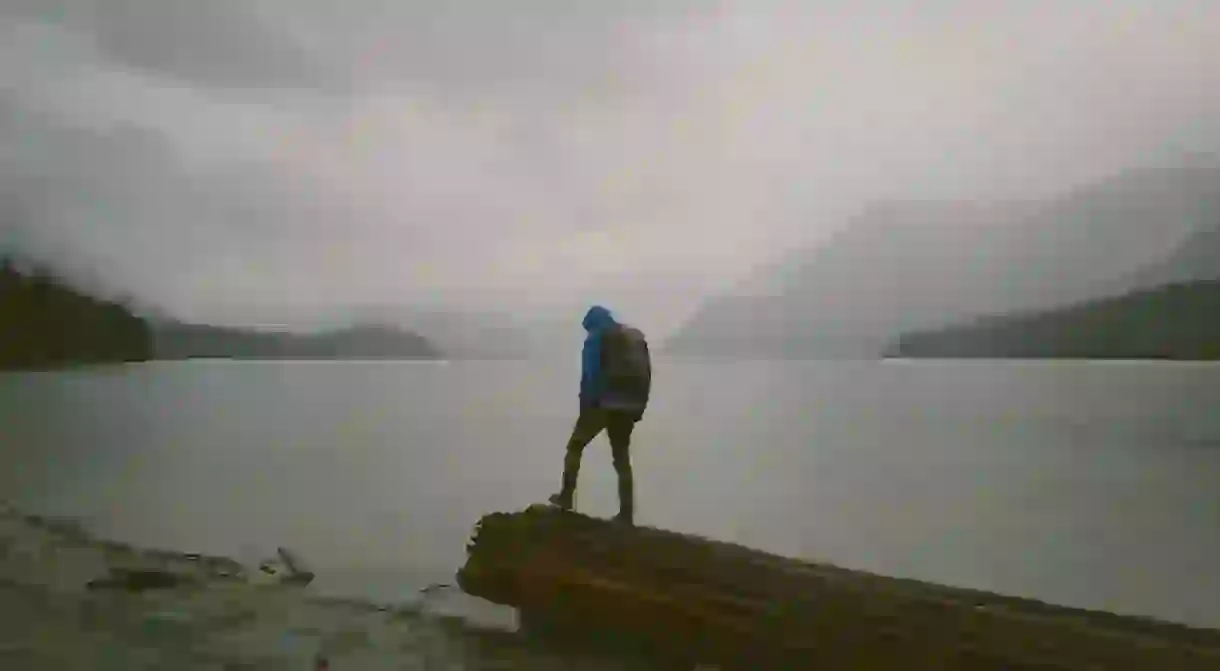How to Survive Alone and Lost in the Wilderness

Picture this. You’re enjoying a typical day skiing or snowboarding. You’ve done it countless times before, but this time something happens. On what is planned to be your final run down the mountain you get disoriented. There’s a storm quickly approaching. You are now lost. Your cellphone isn’t picking up signal. What do you do?
Former professional hockey player Eric LeMarque was stranded alone in the Sierra Nevada mountain range for eight days with minimal resources in a similar predicament. LeMarque had gone snowboarding and got lost. Finally, on the brink of death, he was rescued.
LeMarque endured hypothermia, starvation, frostbite, dehydration and hallucinations, not to mention encounters with wolves and the elements, for more than a week. Thankfully, he made it out alive, though he lost both of his legs to frostbite. His harrowing tale of survival is recounted in the recently released film, 6 Below: Miracle on the Mountain.
Should you unfortunately find yourself in a similar situation to LeMarque’s—alone with limited resources and lost in the wilderness—here are survival tips from survival experts and LeMarque himself, that can help save your life.
Stay put
Probably the number one misconception about being lost. Whether you’re stranded on a snowy mountain, dense jungle or barren desert, it’s best to stay where you are. In LeMarque’s case, he ended up walking the wrong way, some nine miles further from where he originally got lost. It is the piece of advice, even still to this day, he gives people if they ever end up in a similar predicament.
“If you do ever get lost, stranded or stuck, stay where you are,” LeMarque said. “It’s likely that you’re close to the path you started from. Don’t get nine miles deeper into the wilderness. Hunker down, collect your thoughts, be patient.”
Don’t eat/drink snow
Consuming snow as a source of hydration is actually more detrimental to your hydration and health than you’d think. Ingesting cold snow forces the body to work overtime in an effort to warm it up, thus expending valuable energy and resources needed for survival. In LeMarque’s case, he smartly put snow in a plastic bag he was carrying—it originally had his supply of crystal meth that he dumped out—and used his external body heat to melt it into water.
“Putting large amounts of cold snow in your body lowers your core body temperature,” said John Adama, survival instructor and founder of The Prepared. “It only takes a drop in core temperature of four degrees to become hypothermic. Assuming you can find clean snow, the best thing to do is melt the snow first in whatever way possible. Using your external body heat is better than your internal core heat.”
Take inventory of resources
LeMarque’s resources were thin to say the least—four pieces of gum, a pack of wet matches, an MP3 player, a plastic bag full of drugs, minimal clothing, and a dying cellphone. Utilize all of your resources to their full advantage, taking nothing for granted. There’s even a way to make a temporary lighter out of a battery and gum wrapper, which can lead to stoking a fire for warmth.
Build a shelter
Depending where you are lost can drastically change what external resources are available for you to fashion some sort of shelter from the elements. LeMarque’s options were limited in the mountains, so he dug little fortifications in the snow that he could hide in to avoid the storm and elements.
“Eric had the right idea of creating a bed of bark to prevent heat loss through conduction, and jamming himself in a tight space to prevent heat loss through radiation,” said Roman Zrazhevskiy, a former EMT and founder of Ready To Go Survival. “Our bodies expel heat all the time. If you can find a way to capture that heat, you can use it to stay warm.”
Prepare for anything
Obviously hindsight is 20-20, but it’s better to prepare for the worst-case scenario than to be stuck in that situation without a plan or resources. If you’re going into the wilderness, whether it’s on a hike, ski trip or a four-wheeling excursion, make sure you communicate with someone as to your whereabouts. Pack accordingly; that means a utility tool or pocket knife, food/snacks, water, proper clothing, compass, portable cellphone battery, lighter/firestarter, etc.













